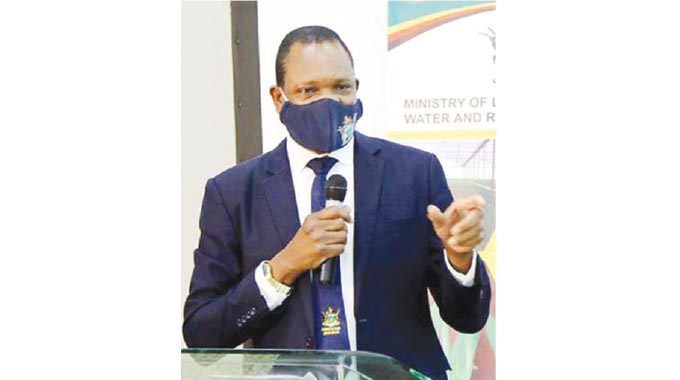Business Reporter
The restructuring of Agribank into a land bank is on course and is expected to be completed by end of March, Lands, Agriculture, Water and Rural Resettlement Minister Dr Anxious Masuka, has said.
Once complete, the restructuring exercise will entail that the bank would be able to provide investment support to A1, A2 and small-scale commercial farmers who have not been supported by commercial banks.
Last year, the Government approved the proposal to reconfigure Agribank into a Land Bank to take up the functions of its immediate predecessor, the Agriculture Finance Corporation (AFC), which advanced short-term, medium-term and long-term agricultural loans to farmers.
The new bank will be called the Land and Agricultural Development Bank of Zimbabwe.
In an interview recently, Dr Masuka said the restructured financial institution was expected to give farmers more comprehensive services such as mobilising private sector finance in order to contribute to job creation, food security and social security in rural areas.
“That’s why we have reconfigured it to say it is not the responsibility of the Ministry to ensure farmers are taken from one point to the other towards this journey of achieving an upper middle income economy status by 2030.
“But the whole Government approach requires that Agribank as a financier be there to offer comprehensive services to the farmers,” he said.
In addition, the restructuring of the bank is aimed at supporting Zimbabwe’s Agriculture Recovery Plan, which is aimed at ensuring food self-sufficiency for the country.
“Very soon by 31 March, they will now be called Land and Agricultural Bank of Zimbabwe and their model fits the financing of such schemes like the irrigation schemes in the country,” said Dr Masuka.
This is in view of the fact that agriculture, among other productive sectors, is crucial in realising Vision 2030 taking into account its contribution to the economy and to national security.The setting up of vibrant and diversified rural financial services, which are underwritten by a land bank or its equivalent, will be an important step which the country should take to move towards attaining an upper middle-income economy status by 2030.This is out of the realisation that smallholder farmers comprising communal, old resettlement, small-scale commercial and A1 farmers constitute 99 percent of the farming population, holding up to 95 percent of the productive land and owning over 90 percent of the national livestock herd.Dr Masuka said the institution will also provide investment support for A1, A2 and […]
